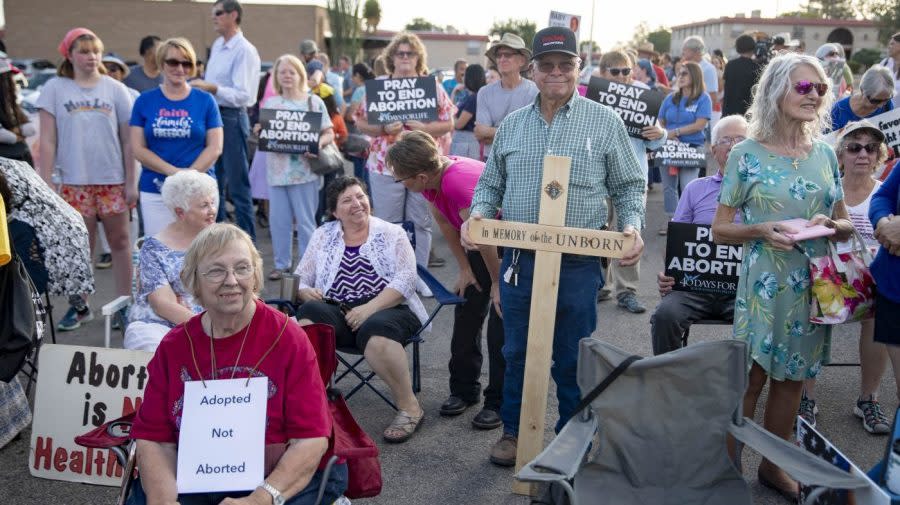New Mexico Supreme Court considers challenge to local anti-abortion ordinances

New Mexico’s highest court is considering whether a 19th-century federal law allows local governments to ban abortion despite some of the most permissive state laws in the country.
The state Supreme Court heard oral arguments Wednesday on a challenge from the state, which asked the justices to invalidate local laws passed by four conservative counties and cities.
Attorney General Raúl Torrez (D) argued the statutes exceeded the authority of local governments to regulate health care access and violated the New Mexico Constitution’s guarantees of equal protection and due process of a woman’s right to bodily autonomy.
Abortion is legal in New Mexico up until birth, making it a safe haven for women who are forced to travel from their home states where abortion is either banned or severely restricted.
Lea and Roosevelt counties and the cities of Hobbs and Clovis each passed ordinances effectively banning abortion, arguing the 1873 Comstock Act superseded state law. The Comstock Act was an anti-vice law originally written to stop anything that could “corrupt” morals from being sent in the mail.
The law has been largely dormant in recent years and was made largely irrelevant by the 1973 Roe v. Wade ruling that created a constitutional right to an abortion. But it remained on the books, and now anti-abortion groups are using it to challenge the legality of abortion pills, as well as to stop abortion clinics and hospitals from obtaining equipment needed to perform abortions.
The local ordinances were drafted with the help of Texas-based anti-abortion activists, including Jonathan Mitchell, the former solicitor general of Texas who wrote the state’s anti-abortion “bounty” law.
Mitchell and other anti-abortion activists believe that the Comstock Act supersedes any state-level abortion laws, and can be used to pass a total abortion ban across the U.S.
In response to the local actions, New Mexico Gov. Michelle Lujan Grisham (D) signed into law a bill that protects access to abortion and transgender hormone treatments by preventing local governments from banning them.
Many of the questions from the justices in the one-hour hearing Wednesday focused on the issue of preemption, and whether the state law or federal law should be enforced.
“The Supreme Court should nullify the ordinances at issue in this case and prohibit their enforcement, not only because they are preempted by state law but because they constitute a form of gender based discrimination and are unconstitutional,” Torrez said in a statement.
New Mexico is one of three states where courts are considering abortion actions this week.
On Tuesday, the Arizona Supreme Court heard arguments about an 1864 abortion ban made before Arizona was even a state, and whether it has been limited or made moot by other statutes.
In Idaho, a district court will hear arguments Thursday about whether a lawsuit asking for clarity on the “medical emergency” exceptions from four women who were denied abortions can continue.
For the latest news, weather, sports, and streaming video, head to The Hill.


